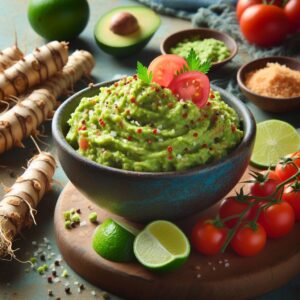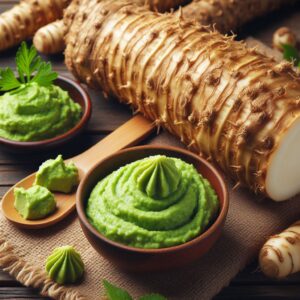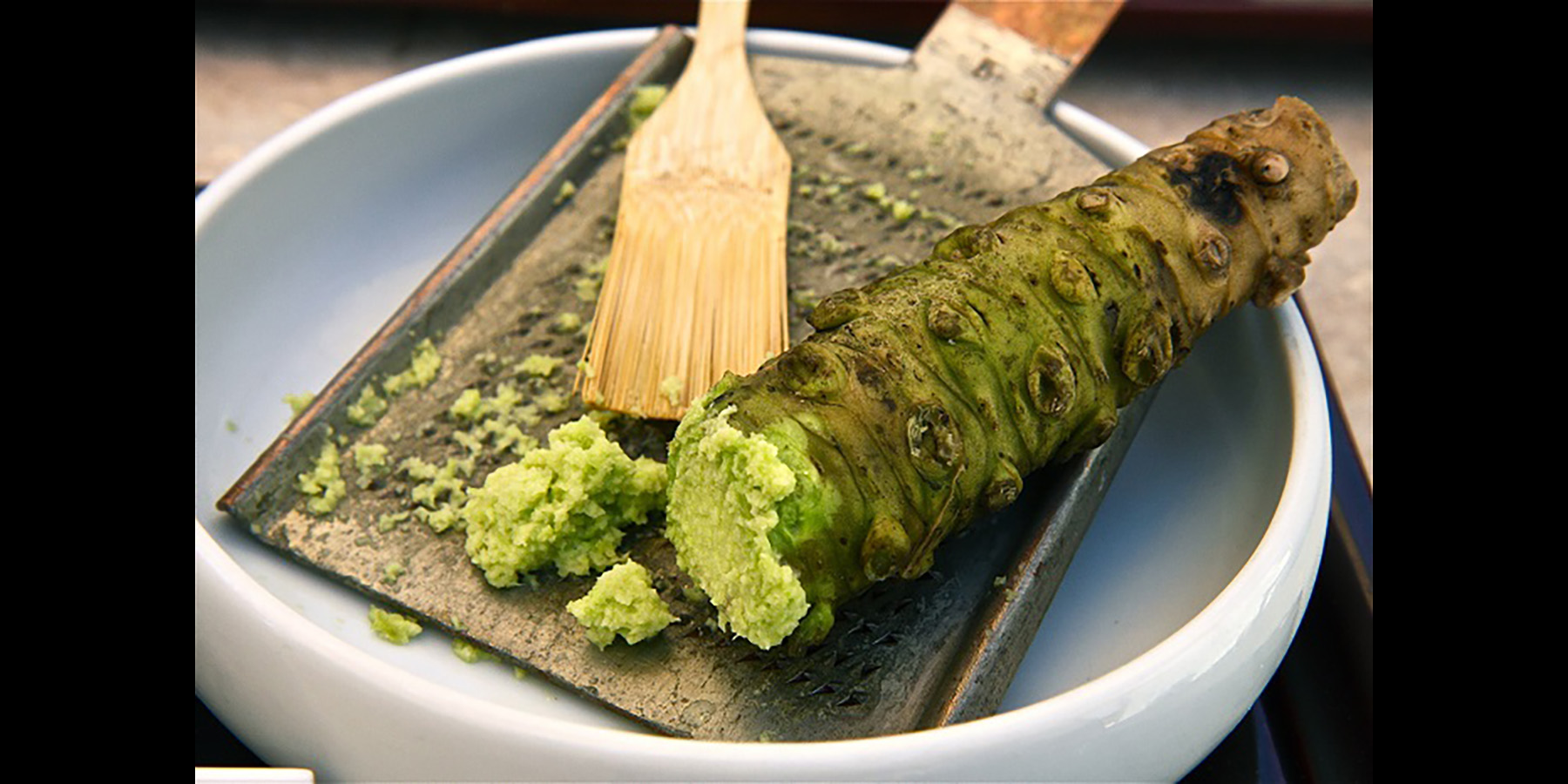At Whiskey Hill Farms, our wasabi is certified organic and is regeneratively grown in nutrient-rich soil. It’s very good for your health, and for the environment. Super-fresh, harvested when you order.
Wasabi takes over a year to grow. Not a drop of chemical fertilizer is used as we combine traditional Japanese mountain creekside and modern nutrient-rich farming methods.
Did you know that most of what is served as wasabi in restaurants is actually horseradish and food coloring? You miss out on the flavor and health benefits, while being subjected to additives and salt! Be sure to check out our video and info on Real vs. Fake Wasabi!
About Wasabi
Wasabi is a plant native to Japan and the Russian Far East that belongs to the same family as horseradish and mustard. It has a pale green root, called a rhizome, that is grated or made into a paste to add a spicy flavor to sushi and other dishes. Wasabi is also rich in anti-microbial and anti-bacterial properties that can help prevent food poisoning and clear the sinuses. Besides the rhizome, the leaves, stems, and flowers of the wasabi plant are also edible and can be used in salads, soups, pickles, and tempura. Wasabi is a rare and expensive plant that requires specific conditions to grow, such as running spring water and cool temperatures. Therefore, many wasabi products in the market are actually made from horseradish, mustard, and food coloring. To enjoy the authentic taste and benefits of wasabi, you should use fresh wasabi.
Health Benefits
A great many health benefits have been reported for wasabi, including:
Wasabi contains isothiocyanates (ITCs), which are responsible for most of its health benefits, including its antibacterial effects. A study published in the Journal of Food Science found that wasabi can inhibit the growth of several types of bacteria, including E. coli and Staphylococcus aureus. ITCs inhibit the growth of cancerous cells but do not harm healthy cells, and have been shown to suppress tumor growth.
Wasabi has been shown to have anti-inflammatory properties, which may help reduce the risk of chronic diseases such as heart disease, diabetes, and cancer. It is rich in antioxidants, which help to protect the body against free radicals that can cause cell damage. A study published in the Journal of Medicinal Food found that wasabi can inhibit the production of inflammatory cytokines in the body.
Wasabi has been traditionally used in Japan as a digestive aid, and modern research has confirmed its effectiveness. A study published in the Journal of Nutritional Science and Vitaminology found that wasabi can improve digestive function and reduce the risk of constipation. It is thought to prevent colitis.
Wasabi has been shown to reduce obesity and blood pressure. It is low in calories and high in fiber, making it a great addition to a weight loss diet. A 100-gram serving of wasabi contains only 109 calories and 3.3 grams of fiber.
Wasabi is a good source of several important nutrients, including vitamin C, potassium, and calcium. A 100-gram serving of wasabi contains 41 milligrams of vitamin C, 558 milligrams of potassium, and 32 milligrams of calcium.
Wasabi has been found to be effective in reducing the risk of blood clots. A study published in the Journal of Agricultural and Food Chemistry found that the active compounds in wasabi can help to prevent platelet aggregation, which is a key factor in the formation of blood clots.
Posts

Top Ways to Add Fresh Wasabi to Your Diet


